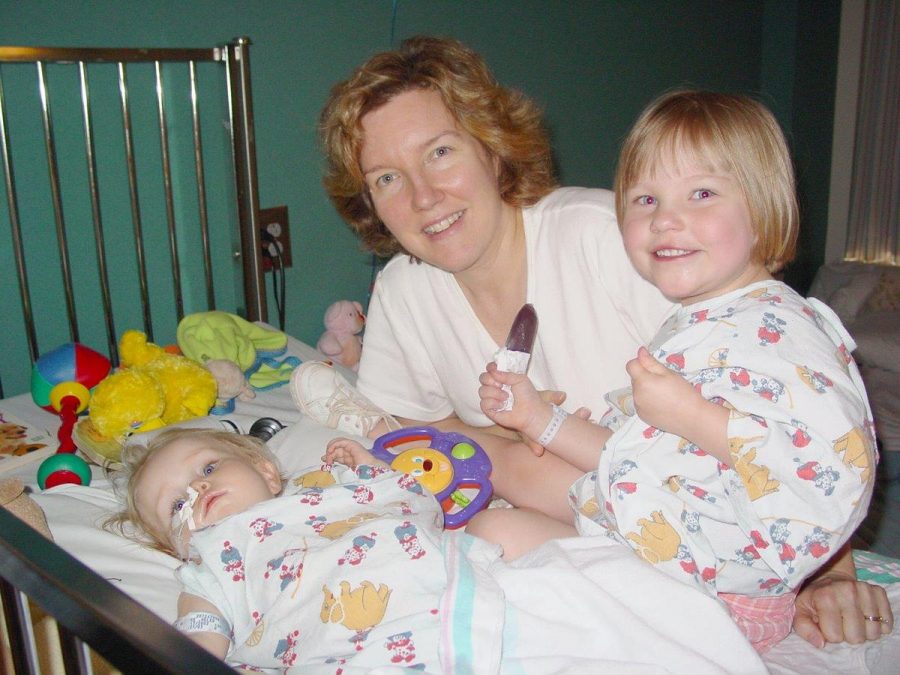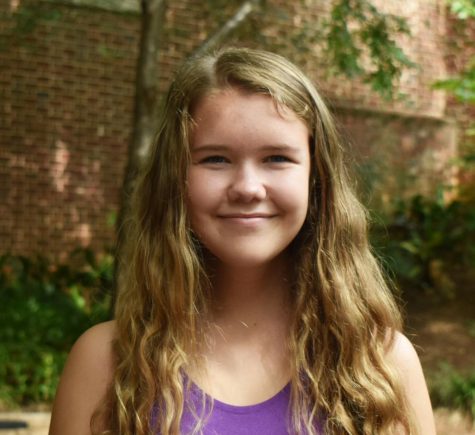Immunocompromised student shares perspective through Coronavirus pandemic
Photo Courtesy of Elizabeth Moore
Mother and organ donor, Elizabeth Moore, leans in toward her newly transplanted daughter, Helen Moore, alongside Helen’s sister in Nov. 2003.
March 26, 2020
Two weeks ago, while you were in class, at work, or going through your daily routine, my quarantine had already begun.
On Tuesday, March 10, my parents and doctors made the difficult decision to take me out of school in order to get ahead of the COVID-19 pandemic. They have reason to be so cautious: when I received my mom’s kidney at 21 months old, I traded my renal failure for a relatively normal life ruled by a handful of immunosuppressive pills taken every 12 hours and seemingly endless clinic appointments. My immune system is weaker than my peers’; a cold for my classmate could be a week-long illness for me.
Recently, I have found my condition mentioned in dozens of news articles covering COVID-19, warning higher health risks for those who have “kidney disease,” are “immunocompromised” or have “underlying health conditions.”
I don’t like being treated differently because of my health status, but the coronavirus has given everyone around me a reason to do so. When I stayed home, my classmates asked why I was absent from class, wasn’t there during practice or couldn’t go grab food after school.
Although it is serious, I often try to make my condition seem less intimidating to my peers. I will crack a joke about it or play it down because the reality can make people uncomfortable and worried.
My classmates seem to deny the reality of COVID-19. They claim that they aren’t at risk and that it only affects older people. Meanwhile, I have reasons to fear this virus. My friends may be asymptomatic or able to kick it like a bad cold, but if I catch it, I could be hooked up to a ventilator in critical condition within days. Because of this risk, I have to swipe past their social media posts where they ignore social distancing and spend time together while I am in self-quarantine. I watch from afar as they take their health for granted.
I don’t want people’s pity for my condition. I want awareness. I want my peers to be thankful for their health and understand that they are putting others at risk, including me, by living their lives like they normally would and disregarding recommendations of social distancing. This time off from in-class school isn’t a vacation — it is an effort to save lives like my own.









Libby Massiah • Apr 21, 2020 at 10:17 am
Thank you, young lady.
Ellen Buoyer • Mar 28, 2020 at 1:35 pm
Helen,
I walked a mile in your mother’s shoes 25 years ago when Mary Frances went through chemotherapy for leukemia. For 3 years and beyond I lived in fear of chicken pox and other maladies that didn’t keep other parents awake at night. During today’s covid-19 crisis those painful memories have made me think of you and others with fragile immune systems. It’s real. I’m proud of you for writing this eloquent piece. Take care. Fondly, Ellen Buoyer